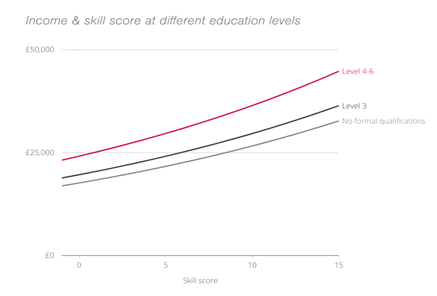
Tom Ravenscroft
Chief Executive Officer, Skills Builder
Tom founded the Skills Builder Partnership in 2009, whilst a secondary school teacher in Hackney. The Skills Builder Partnership brings together a global group of more than 800 partners around a common language and approach to building essential skills like teamwork, communication, and self-management. The Partnership, which includes educators, employers and impact organisations, delivered 2.3 million opportunities to build those skills in 2021-22.
The approach that Tom pioneered has now been widely adopted in the UK, and is being replicated in seven further countries – Czechia, Kenya, Ghana, Uganda, Egypt, Pakistan, and India. The Partnership won the UK Social Enterprise Award for Impact in 2017 and is a WISE Award Finalist for 2022.
Tom was the 2009 UK Entrepreneurship Teacher of the Year. He has served as a non-executive director of Teach First and has also been recognised as one of the UK’s leading social entrepreneurs by being elected an Ashoka Fellow in 2017. He holds a BA in Economics & Management from the University of Oxford.
